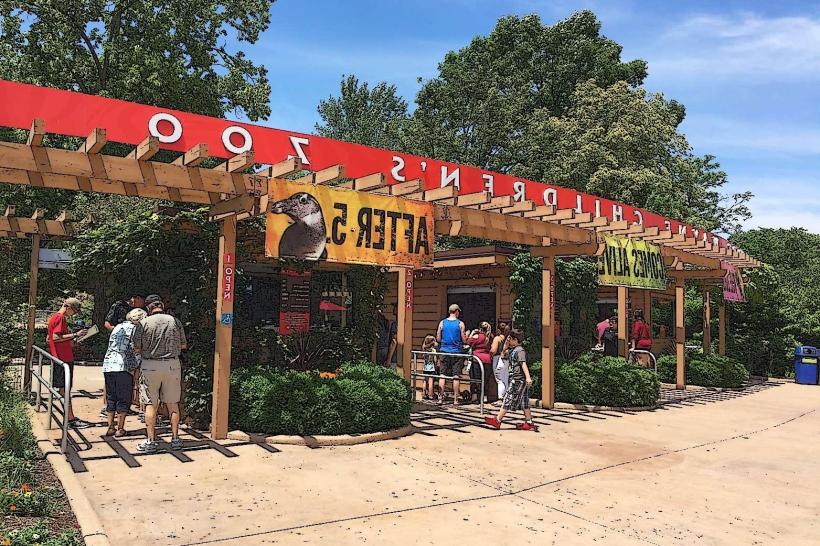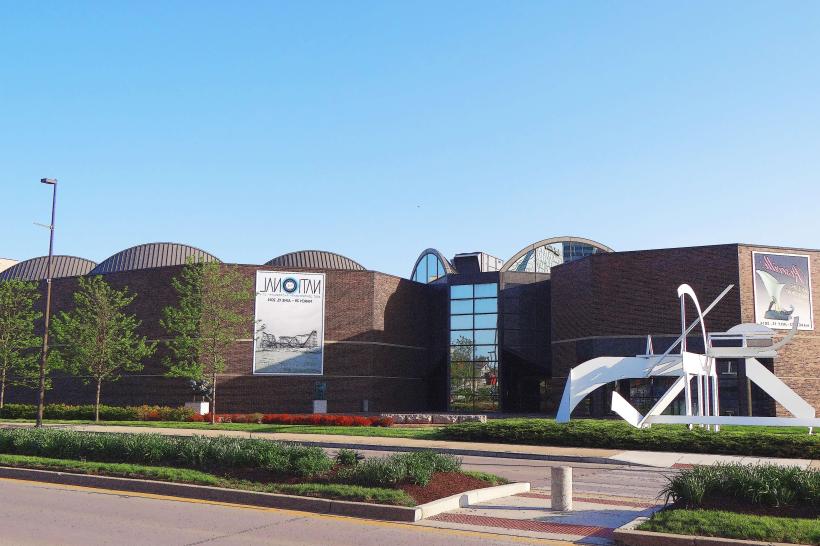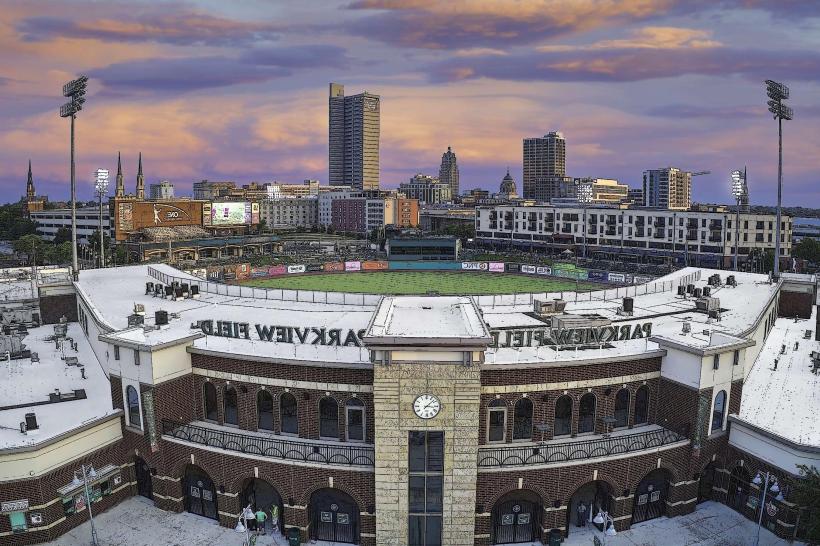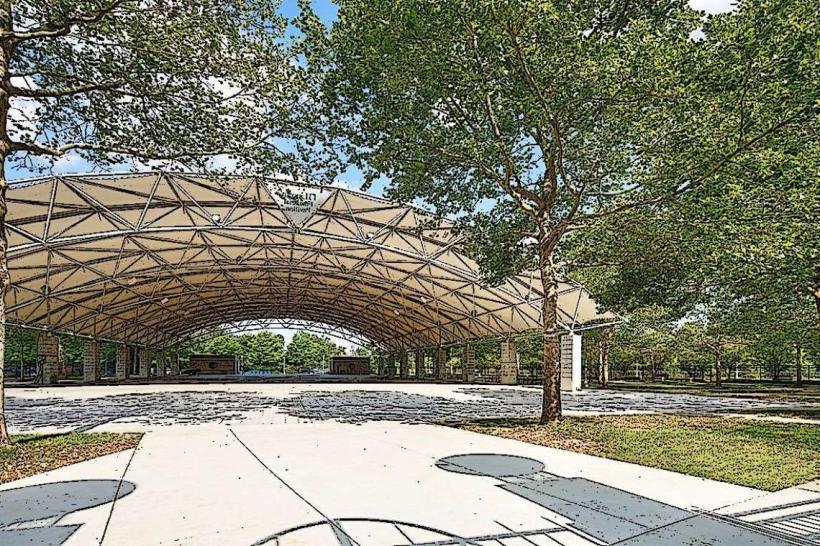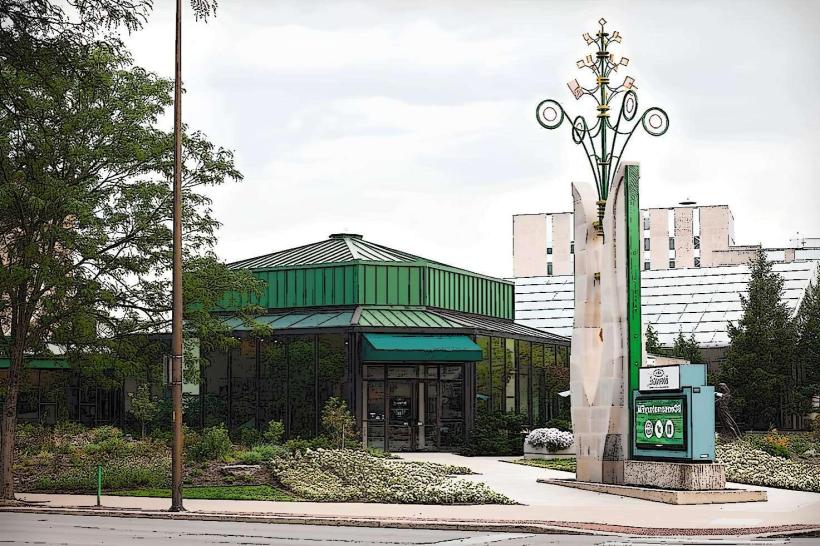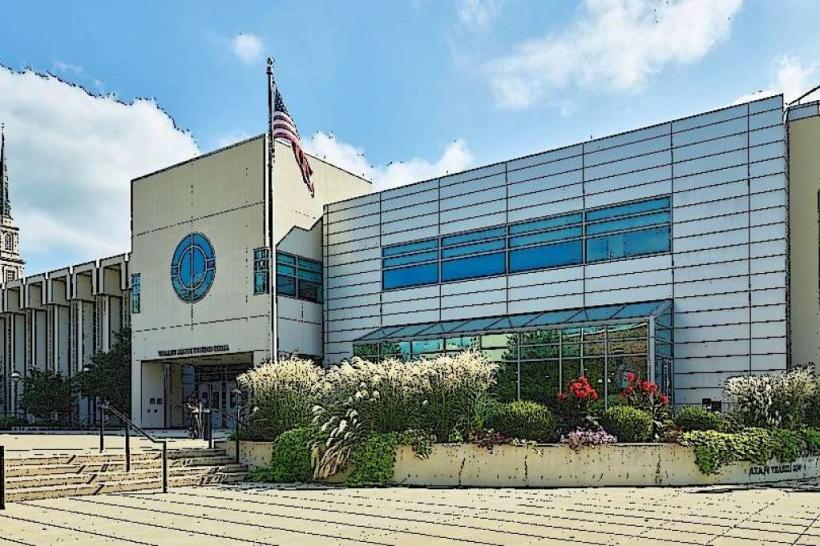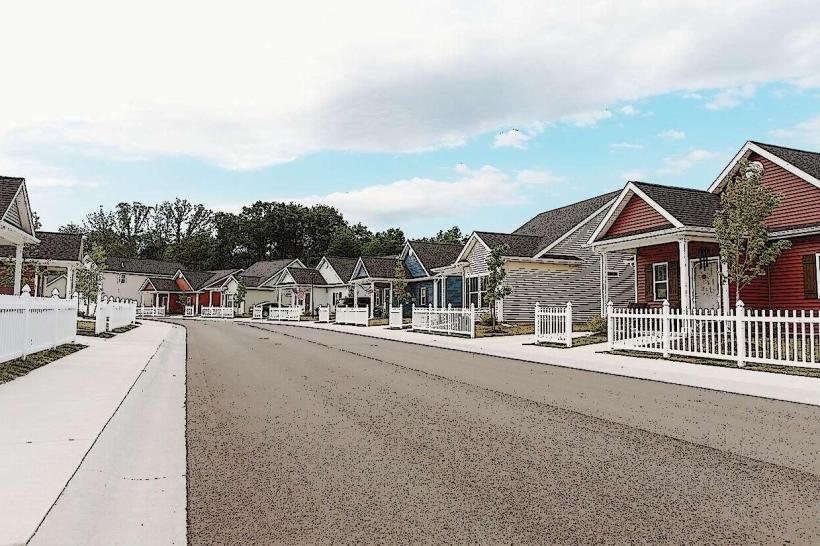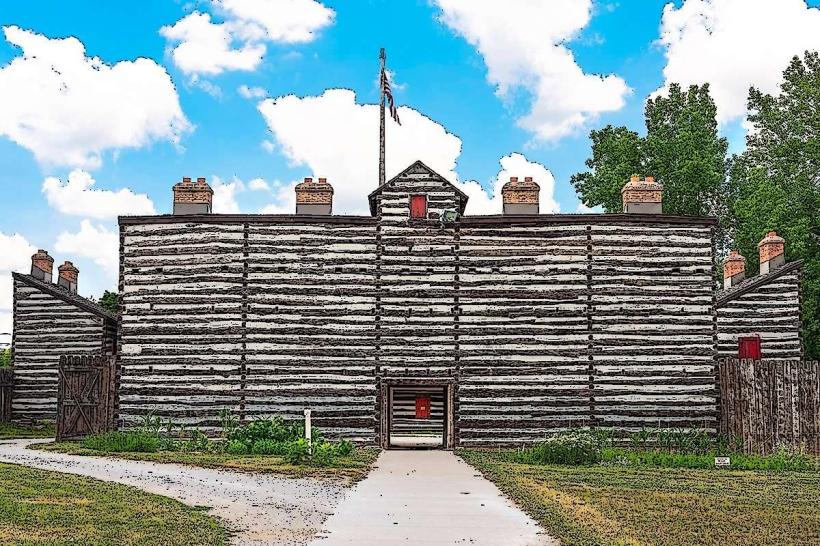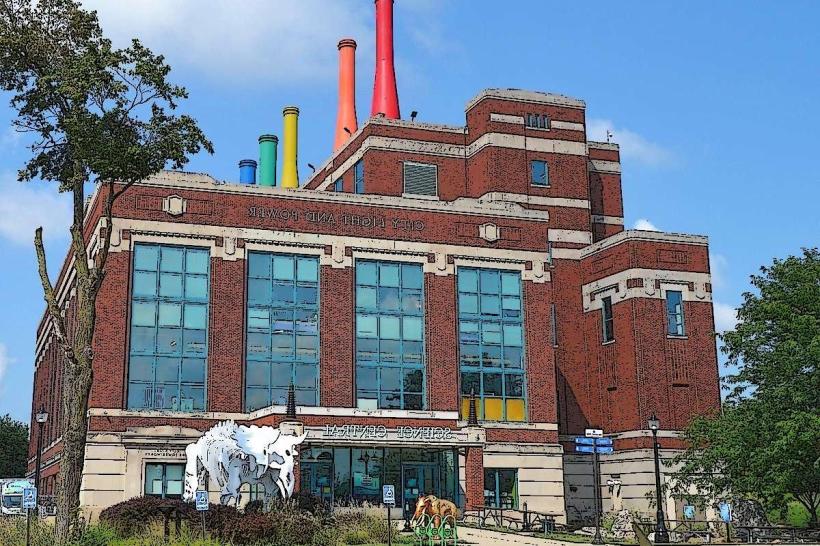Information
Landmark: Foster ParkCity: Fort Wayne
Country: USA Indiana
Continent: North America
Foster Park, Fort Wayne, USA Indiana, North America
Foster Park is a prominent and historic public park located in Fort Wayne, Indiana, spanning approximately 255 acres along the St. Mary’s River. Established in the early 20th century through generous land donations by Samuel and Colonel David N. Foster and their families, the park has evolved into one of Fort Wayne’s largest and most beloved green spaces. Its design and layout owe much to the influential landscape architect George Kessler and his associate Adolphe Jaenicke, who incorporated Foster Park into Fort Wayne’s extensive boulevard and parkway system, emphasizing natural beauty, recreational opportunities, and community accessibility.
Historical Background and Development
The park’s origins date back to 1912 when the Foster family began donating land to the city. The initial parcel of 67 acres along the St. Mary’s River gradually expanded over the following two decades through additional donations and purchases, ultimately covering a four-mile stretch of riverbank. The vision for Foster Park was to create a multifunctional urban green space that combined scenic landscapes with active and passive recreation. George Kessler’s involvement ensured that the park’s natural features-woodlands, river views, and rolling terrain-were harmoniously integrated with designed amenities and pathways.
Natural Features and Landscape
Foster Park’s diverse landscape includes mature hardwood forests, open meadows, and the winding St. Mary’s River. The river itself offers a scenic waterway that enhances the park’s tranquility and provides opportunities for fishing and riverside walks. The park’s trails follow the contours of the land, with gentle hills and shaded paths that encourage walking, jogging, and biking. Seasonal floral gardens add bursts of color, with carefully maintained flower beds showcasing annuals and perennials that attract butterflies, birds, and other wildlife.
Recreational Amenities
Foster Park Golf Course:
At the heart of the park is an 18-hole, par 71 golf course set amid lush woodlands. The course is designed to offer both challenge and accessibility, with walkable terrain and a layout that accommodates golfers of all skill levels. Its natural setting provides a serene golfing experience, making it popular among local players.
Playgrounds:
The park features recently renovated playgrounds equipped with inclusive play structures suitable for children ages 5 to 12. These playgrounds are designed to encourage physical activity, social interaction, and imaginative play, with equipment that supports a variety of motor skills and sensory experiences.
Sports Facilities:
Visitors can enjoy tennis courts and pickleball courts located within the park, along with volleyball courts, all maintained to promote active recreation and community sports leagues.
Pavilions:
Foster Park includes three pavilions available for public reservation, providing sheltered spaces for picnics, family gatherings, and community events. Pavilion I accommodates up to 336 people, Pavilion II up to 128, and Pavilion III is a historic structure built in 1938 by the Works Progress Administration (WPA) and recently restored to preserve its architectural and cultural significance.
Community Garden:
A designated area within the park supports a community garden where local residents can cultivate flowers, vegetables, and herbs, fostering neighborhood engagement and sustainable gardening practices.
Trails and Connectivity
Foster Park is connected to Fort Wayne’s broader Rivergreenway trail system via the St. Mary’s Pathway. This connection provides approximately two miles of paved multi-use trails that meander through the park’s scenic areas. The trails accommodate walkers, runners, cyclists, and nature enthusiasts, facilitating easy access to the park from other parts of the city. The integration of trails with natural green space encourages outdoor recreation and promotes healthy lifestyles.
Historic and Cultural Features
Replica of Abraham Lincoln’s Birth Cabin:
The park features a carefully constructed replica of Abraham Lincoln’s birth cabin, providing an educational and historical point of interest that connects visitors to the broader narrative of American history.
Cable Footbridge:
A unique architectural feature, the cable footbridge spans a section of the park, offering picturesque views of the river and surrounding woods while enabling pedestrian circulation.
Foster Park Neighborhood Historic District:
Adjacent to the park lies a residential neighborhood listed on the National Register of Historic Places. Developed primarily between 1924 and 1963, this district showcases architectural styles such as Tudor Revival, Colonial Revival, and Craftsman bungalows. The neighborhood’s design, crafted by architects Hilgeman & Schaaf, emphasizes curving streets and minimized through-traffic to maintain a peaceful living environment.
Visitor Information and Amenities
Location:
Foster Park is located at 3900 Old Mill Road in Fort Wayne, Indiana, accessible by car, bike, and public transit.
Hours:
The park is open daily from 6:00 AM to 11:00 PM, offering ample daylight and evening hours for visitors.
Facilities:
Restrooms, parking areas, picnic tables, benches, and water fountains are available throughout the park for visitor convenience.
Reservations:
Pavilions and certain park facilities can be reserved for events through the Fort Wayne Parks Department.
Community Importance
Foster Park serves as a vital recreational and cultural asset for Fort Wayne residents. It provides a balanced blend of active and passive recreation in a natural setting, fostering community well-being, environmental stewardship, and outdoor enjoyment. Its historical significance, combined with modern amenities, makes it a favored destination for families, athletes, nature lovers, and history enthusiasts alike.
In summary, Foster Park is a sprawling, historically rich, and multifaceted urban park that offers a wide range of recreational, cultural, and natural experiences. From its golf course and playgrounds to its scenic trails and historic landmarks, it stands as a cornerstone of Fort Wayne’s park system and a testament to thoughtful urban planning and community engagement.


